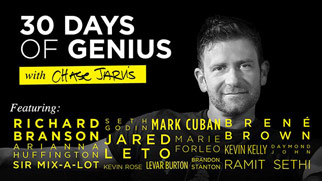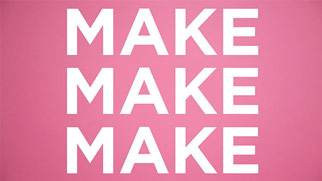In a nutshell, Dr. Adam Gazzaley is a genius. He’s got a very big brain. He explains what he’s all about a lot more eloquently. You’ll hear it when you listen, but that’s my condensed introduction. He’s doing important work and it’s so great to talk to Adam again. It’s been a while and we’ve got a lot of ground to cover in regards to the groundbreaking advancements in his field.
Adam Gazzaley MD, Ph.D. is Chief Scientific Advisor & Board Member at Akili, he’s a professor at the University of California, San Francisco where his neuroscience lab called the Neuroscape Center is at the leading edge of bridging the gap between neuroscience and technology. I’ve had a long interest in neuroscience. I’ve talked with Adam before about his vision and the work he was doing at the time. That was 14 years ago. I’m now catching up with him about his vision, and how it’s grown. His work has supported the research and development of Akili’s first-of-its-kind video game as a form of medication called EndeavorRx®. It’s recognized and validated by the FDA for use by children with ADHD. This is at the forefront of the future of digital medicine.
Thinking Beyond the Pill for Attention Deficit Disorder and ADHD
Attention deficit disorder and ADHD are among the most common neurodevelopmental disorders in childhood. Research has helped scientists at Akili target key areas that play a role in brain function, and they’ve figured out how tech can help more people, beyond the pill. Imagine playing your medicine. The phrase itself feels unknown because the science of using technology in medicinal approaches is so new. But, the future of digital medication is here. So much so that the FDA has recently approved the first video game as a form of prescription treatment.
Adam through his research and the work of Akili has been taking huge strides in the science behind using technology to help improve people’s lives. I’ve been long fascinated with neuroscience and how it intersects with our experience of life. The implications of Adam’s work are fascinating.
We now live in an era where personalized digital therapeutics (that your doctor can prescribe) can help improve cognitive impairments. Read that again, twice. For people who are seeking treatment in these areas and are thinking beyond the pill, this is huge. In this episode we talk about the practicality of who this is for, and how we get it.
This is a new way of thinking about medicine. Adam says it’s more than just a new product. How you access this new treatment for children is by talking to the doctor for a prescription. The way FDA works, it’s very narrow, so the first trial from Akili that is approved is for children 8-12 year olds. The data shows benefits in many other populations. It’s not just for treating adhd but works for people with depression, multiple sclerosis, and in supporting autistic individuals. There’s even new studies showing benefits for those with Covid fog. The technology supports any population that has attention deficits.
Playing medicine versus taking it targets specific brain networks through the process of neuroplasticity. Traditional medicine works when you’re taking it, and stops when you’re not. Using digital technology as a treatment can lead to sustained and lasting change. Technology used this way does not have serious side-effects. The treatment is time limited, 25 minutes only per day, only 5 days a week. The dose is controlled. Once you have treatment, you’re connected for ongoing feedback. It’s a closed loop system that traditional medicine does not provide. This new type of medicine and the advancements continue to grow and develop. How do we use the tech that leads to enduring outcomes?
Ancient Brains in a High Tech World
What’s happening here is the groundwork for a complete paradigm shift. The way everyone thinks about medicine, from the individual, parents, the doctors, insurance companies and medical institutions will change. For Adam this isn’t a fringe treatment, the intention is that it goes mainstream and is accessible to all. Science is completely changing the approach to treating ADHD, attention disorders and other cognitive impairments.
Akili is working through the hurdles and they’re in it for the long haul. It’s immensely exciting. I talk with Adam who is dedicated to upgrading in a way our ancient mindsets. Using neuroscience and technology to approach things in a new way. There’s nothing to model this off of. It’s all completely new.
I feel strongly about attention. How we direct our attention has an effect on how we view this world. What we think about makes the difference. Fundamentally, where we place our attention in this moment is what we have.
Adam has chosen to focus his career on attention. It’s no surprise that we agree on the importance of it. Adam talks about it from a neuroscience perspective. He explains that attention is fundamental to everything that our brain does. It’s infinitely fascinating how we move and divide attention. “My view is that how we paint the world in our minds, how we perceive it is guided by our attention, how we deploy it,” Adam says, “And that then creates our memories and forms our personality and our you know, emotional landscape.”
We live in a world where there are so many forces made for pulling our attention in different directions. Adam wrote a book on the topic called The Distracted Mind: Ancient Brains in a High-Tech World. He wrote about the neuroscience and his colleague Larry Rosen, a psychologist, wrote about the real implications kids are facing.
Attention is critical to how we perform, live, think, feel and when it’s impacted by a condition, Adam explains that negative consequences cascade across our entire life.
Behavioral approaches to how we interact with the digital world will improve the experience of it. Digital experience can actually enhance and help evolve our minds if we approach it mindfully. Adam speaks to this and I’m so glad he did. “That mindfulness practice can deliver to you if you can’t focus your attention.” He says, “it’s like building block number one. For thousands of years we’ve clearly known that this was a key part of what needs to be done in order to live a high quality life, nevertheless, an enlightened life or even a life free of suffering. And that was before we had social media, right?”
It’s a worry now, the way things are. The question is can we flip the story of digital technology draining and show how digital technology, when thoughtfully designed, rigorously validated, and then, you know, deployed in a responsible way, can actually lead to an enhancement of what makes us human?
Enter Digital Medicine
Working our minds is critical. This is what it’s all about for Adam. It’s the one goal of understanding how we can harness a fundamental property of how our brain works, which is called experience dependent neuroplasticity. In order to improve our function and improve our lives, it’s everything.
Digital technology is a timely and clever way of doing that. “I think it could change the world,” Adam explains, “But if the brain did not change itself in response to experience, I would not be doing any of this.”
This is foundational. Historically in neuroscience we believed that after development the brain was static or in decline. Now, we understand more about the capacity of our brains to improve function through interactions with the environment.
So foundationally neuroplasticity is not just something we casually throw around. It is a known fact. That your brain evolves and adapts biologically neurochemically structurally. This is B-A-N-A-N-A-S. Read it again. Our brains evolve and adapt and change structurally on the fly.
Adam’s work uses the lessons from neuroscience that teach us what aspects of interaction and experience are most meaningful. It all varies from person to person. Akili utilizes this to deliver it in a way that leads to change. The digital games are built on the same approach that they call a closed loop. A closed loop experience is one where all the elements of the experience (what you see, hear, smell and feel) are challenged. They create an experience where all the elements are built for you and changing with you as you change. In order to create a closed loop, they need to know what’s going on with you. We create an experience where all the elements are built for you and changing with you as you change.
It’s Not Just About Focus. It’s About Life.
Attention is not just about focus, but it’s about gratitude. Listen to Adam share his personal story at 50:02 to hear how he connects this in his own life. The goal is to be fully here and not just be attentionally present, but to have gratitude for the moment. That was sort of the breakthrough that he shares.”Enjoy and be grateful to what is happening in the present.” Adam says, “Don’t just focus on the attention or on the present, but feel gratitude in the moment.”
There is so much in this episode. The idea that you can play your medicine and the implications it has for treating attention deficits and ADHD is mind-boggling and thrilling. I imagine if you’re like me you’ll dive in and listen a few times. The work that Adam is doing is next level, genius level and the kind of work that changes humanity. Learn more about what he’s doing at Neurscape Center, Akili, and EndeavorRx.
FOLLOW ADAM:
instagram | twitter | website
























